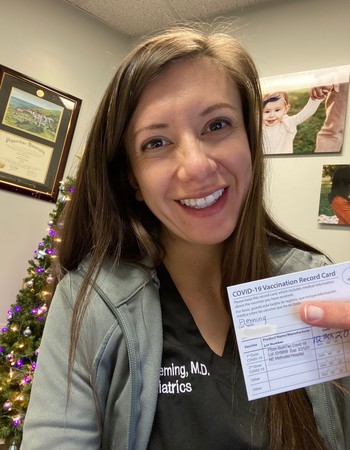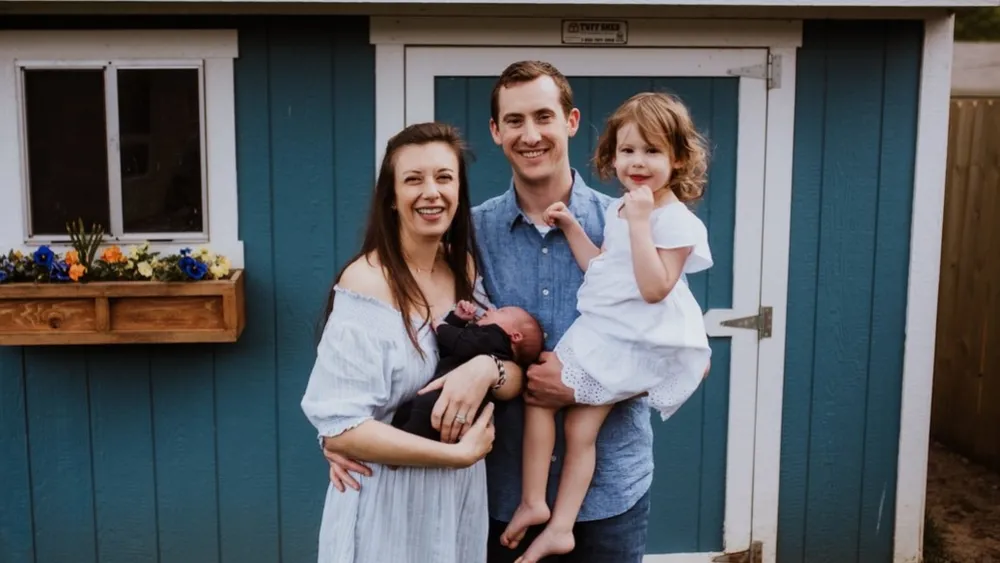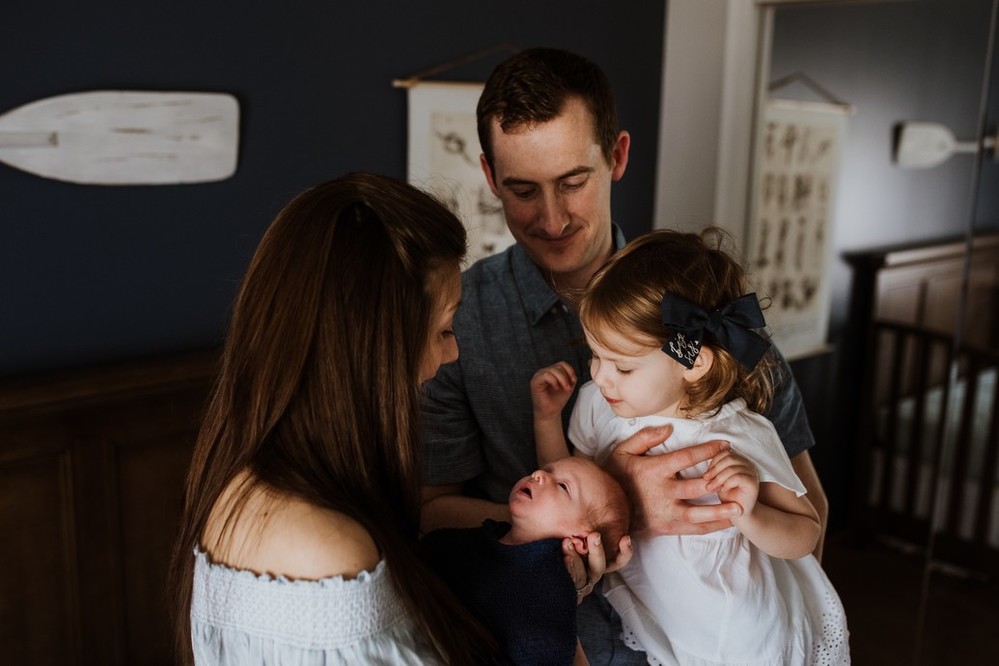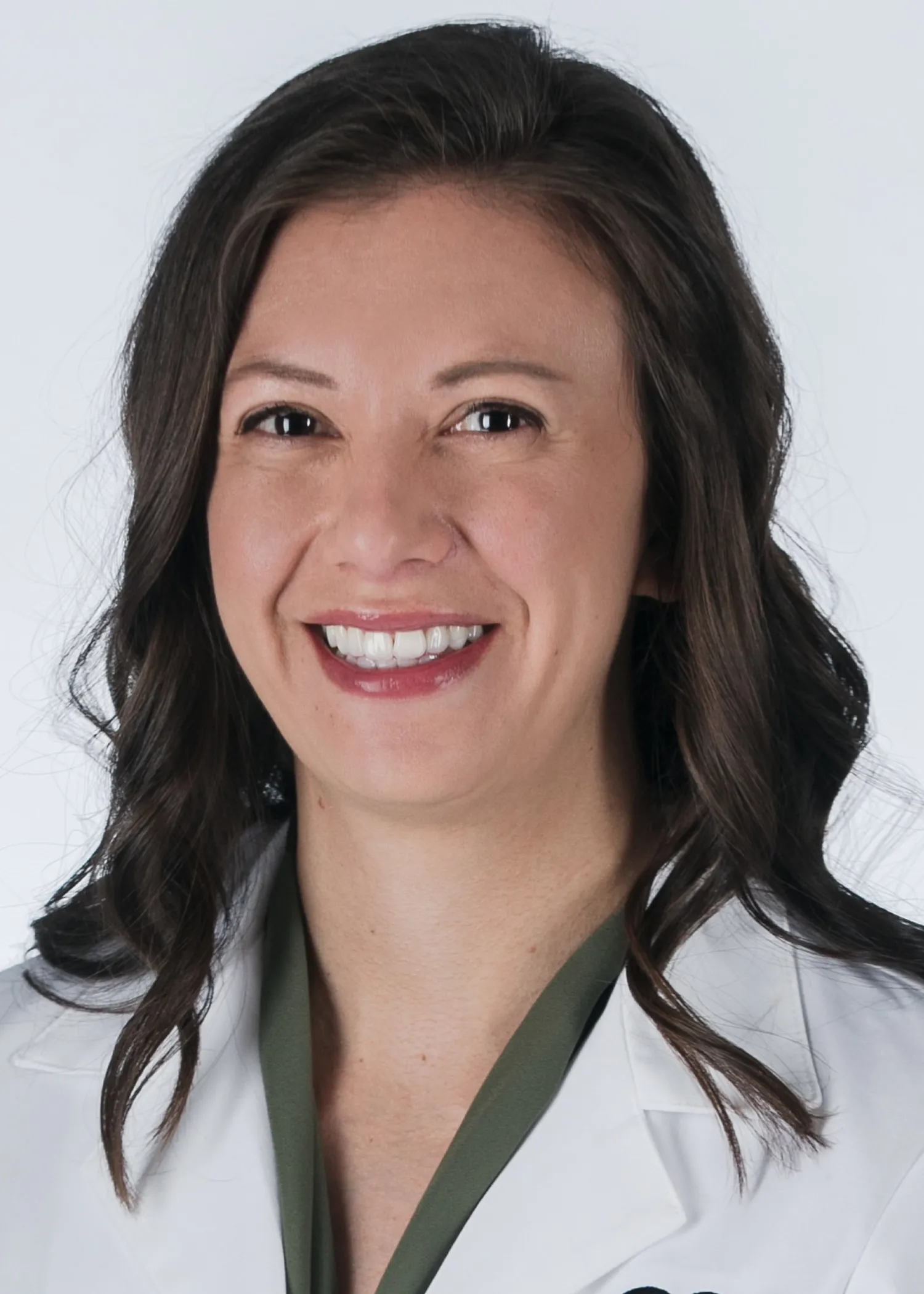
Family Health
Protecting Baby From COVID-19 Well Before Birth: A Doctor’s Firsthand Experience of Vaccination During Pregnancy
Published: Sept. 2, 2021

Photo Courtesy: Erin Dunaway Photography
It was December 2020 when many of my Methodist Health System colleagues and other health care workers across the country had learned that they were finally eligible for COVID-19 vaccination.
I was not.
Despite my role as a pediatrician for Methodist Physicians Clinic, I was also pregnant at the time. And COVID-19 vaccination had not yet been evaluated in pregnant women.
Of course, I understood why pregnancy made me ineligible, but it was still disappointing. My family had been extremely cautious since the beginning of this pandemic. We even pulled our 3-year-old daughter, Melanie, out of day care in March 2020 as a means to avoid unnecessary exposure. I knew the vaccine would have provided one more layer of protection for my family and me.
Guidance and Gratitude
Thankfully, it wasn’t long before the American College of Obstetricians and Gynecologists provided guidance on vaccinating eligible individuals, including pregnant or breastfeeding women.

I reached out to my provider and did some research of my own. All the scientific literature I read highlighted only potential benefits. And as a physician, this made sense to me – just as getting the Tdap vaccine during pregnancy to help pass along pertussis immunity made sense.
I was 20 weeks pregnant when I received my first dose of the Pfizer-BioNTech vaccine in late December. I’ll admit I was a little nervous, but also, more than anything, excited. I still remember looking at the health care worker administering my vaccine that day and feeling this overwhelming gratitude to have been given this opportunity.
Hours after my first dose, I experienced probably the most significant arm soreness I’ve had from a vaccine. After my second dose, I was a little tired. But was that a result of pregnancy or the vaccine? I can’t be sure.
Common Cold or COVID-19?
My husband was vaccinated in April – about a month before Miles Andrew Fleming graced us with his presence. Weighing in at 8 pounds, 13 ounces, Miles was healthy, beautiful and the perfect addition to round out “the Fleming Four,” as we now call ourselves.
Melanie immediately became obsessed with her new baby brother. He lacked no sticky kisses or obnoxious sister snuggles. Melanie loved having a playmate during her days at home.

But as COVID-19 cases continued dwindling in June, we decided it was time for her to return to day care. As anticipated, she quickly began experiencing a revolving door of cold symptoms. After all, she hadn’t been around many other children for roughly 15 months.
But she woke up one morning in August and just seemed off. She was fussy, she had a stuffy nose, and she had one small episode of vomiting. She developed a low-grade fever– no higher than 101 degrees. She was a little sleepy and had a decreased appetite for a few days. We attributed it all to another random virus that was going around. We did the same the following week when our whole family came down with the stomach flu.
Days later, though, on a Sunday – just as we were all preparing to go back to work and “school” – we received an email saying that a child in my daughter’s class had tested positive for COVID-19. My daughter was required to either get tested or quarantine.
She tested positive.
My husband and I were shocked – mainly because, at that point, our daughter was showing no symptoms. We got her tested only as a formality – so that we could get her back to school.
And that’s when the guilt set in.
I had completely written off her previous symptoms as just another childhood cold. And was that really the stomach flu that we all had? My husband and I immediately wondered whether we had COVID-19, too. We didn’t. We tested negative.
And so did Miles.
If I had known at the time that what Melanie was going through was COVID-19, I would have been a lot more scared and done a lot more in terms of trying to keep everyone separated. But as she always is, she was all over her brother – even while symptomatic. So, how did Miles avoid COVID-19? As more information continues to surface on the benefits of COVID-19 vaccination for babies in utero, we now know he had something his sister didn’t: protection.
Although I am breastfeeding Miles – and although he’s likely receiving some antibodies each time he feeds – research tells me that he received much stronger COVID-19 protection from my vaccine. The reason? Immunoglobulin G (IgG) antibodies – the main antibodies we use to fight off infections – have been found in umbilical cord blood. IgG antibodies have also been found in breastmilk. However, the ability for IgG antibodies to be absorbed through the gut is still somewhat unknown.
The Takeaway
I’d be lying if I said I wasn’t afraid of Melanie suffering multisystem inflammatory syndrome or other long-term effects from COVID-19 in the future. It’ll probably always be in the back of mind. But I do consider ourselves lucky that her illness wasn’t severe, and that the rest of us avoided COVID-19 through vaccination.
Of course, I encourage all pregnant women to consider vaccination – especially after witnessing something so powerful – but I hope the bigger takeaway from my story is this: Vaccination works. It has proven to be the most critical tool in the fight against this pandemic. It doesn’t guarantee complete immunity – it wasn’t designed to. And that’s why it’s imperative that we continue using multiple layers of protection – like masking and social distancing – to protect ourselves and those who aren’t yet eligible for vaccination.
Parents of my patients often ask me: “Will you get your children vaccinated when they’re eligible?”
And my answer is a resounding “Yes.”
But until then, all of us ought to continue taking the appropriate precautions. Even though we’re vaccinated, we should still wear the mask. Even though we have airbags in our cars, we should still wear the seatbelt.
If you still have questions on how to best protect your family from COVID-19, please reach out to your health care provider. You don’t have to navigate this pandemic alone. We’re certainly still all in this together.
More Resources
- Considering the COVID-19 vaccine during pregnancy? Here’s what you need to know.
- Learn more about the risks of COVID-19 during pregnancy.
- Read the latest information and stories regarding COVID-19.
- Find a pediatrician.
- Find an OB/GYN.


